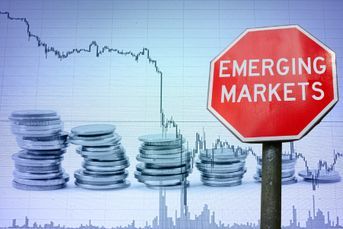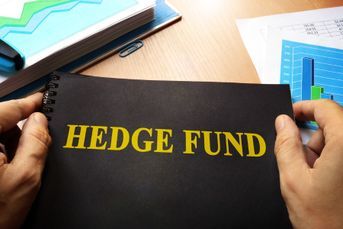Volatility in Treasuries falls as heat in D.C. spikes
The world’s biggest investors are finding government bonds becoming safer, not more risky, as the deadline to avoid…
The world’s biggest investors are finding government bonds becoming safer, not more risky, as the deadline to avoid the first American default approaches.
The yield on 10-year U.S. bonds dropped to a two-month low of 2.58% on Oct. 3, after Treasury Secretary Jacob J. Lew said the government won’t be able to pay its debts unless Congress raises the $16.7 trillion borrowing ceiling. While short-term bill rates and the cost to insure against a default have risen, volatility in Treasuries has fallen, a sign that investor confidence in the Federal Reserve is outweighing worries over the budget battle among U.S. political leaders.
Laurence D. Fink, chairman and chief executive of BlackRock Inc., and Bill Gross, co-chief investment officer Pacific Investment Management Co. LLC, who lead the world’s biggest bond firms, dismiss the possibility of a default, even in the midst of the first government shutdown in 17 years. With the closures shaving at least 0.1% off economic growth each week, Fed policymakers said they probably will keep buying $85 billion a month in bonds.
“The dysfunction in Washington just makes the Fed more likely to be supportive of the market,” said Mark MacQueen, a partner and money manager at Sage Advisory Services Ltd., which oversees $11 billion. “We should stick to the underlying economic fundamentals and not worry about 72 hours in Washington. The real fear of a major rate increase is diminishing as long as this nonsense continues.”
Mr. MacQueen is buying corporate bonds and mortgage securities because they are worth the risk as alternatives to Treasuries, which make up about 25% of his holdings. Investment-grade U.S. corporate bonds offer about 146 basis points of extra yield, compared with government debt, according to Bloomberg indexes.
Little concern
Treasuries were little changed in the seven-day period from Oct. 1 to Oct. 7, with 10-year yields rising 2 basis points, or 0.02 percentage point, to 2.65%, according to Bloomberg Bond Trader prices.
“It’s a strange situation where the bigger the risk of the debt ceiling gets, the more Treasuries seem to benefit,” said John Wraith, a fixed-income strategist at Bank of America Corp. “There’s a firm belief that ultimately this will get resolved one way or another, but in the interim, it dampens the growth outlook and increases the chance the Fed will have to keep its foot down for longer.”
The 10-year yield has dropped since reaching a two-year high of 3.01% on Sept. 6. While the median estimate of more than 60 economists in a Bloomberg survey indicates that it will rise to 3.36% by the end of 2014, that still will leave it below the average over the past decade of 3.53%.
“What we have seen in times of crisis, whether it’s geopolitical or purely political, or economic, there tends to be a flight to quality,” said James Sarni, senior managing partner at Payden & Rygel, which manages $85 billion. “The market is not pricing in a high probability of a default,” he said. “The market is ignoring Congress.”
While Mr. Fink and Mr. Gross, whose firms oversee a combined $5.76 trillion, remain confident that the U.S. government will pay its debts on time, some investors are hedging their risks.
Insuring against losses
Credit-default swaps insuring against losses on U.S. Treasuries almost doubled last month to 64 basis points for one-year, according to data provider CMA. A basis point equals $1,000 annually on a contract protecting $10 million of debt.
While bill rates are rising amid concern the government may not repay the debt on time, longer-term Treasury yields are falling as investors seek safety in case such a scenario upends financial markets.
“The market is pricing in a lot of negative scenarios right now,” said Gary Pollack, manager of $12 billion as head of fixed-income trading at Deutsche Bank AG’s Private Wealth Management.
Learn more about reprints and licensing for this article.








